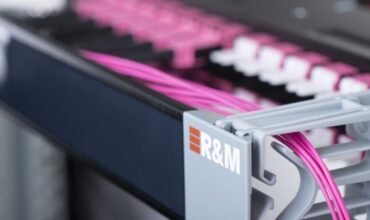Antoine Harb, Team Leader Middle East and North Africa at Kingston Technology explains that the surge in the demand for internet traffic, connectivity and data storage is fueling the need for more colocation data centers
People spend more hours online today than ever before, especially under the new reality ushered in by the pandemic. Now we turn to the internet to study, work and play, consuming and creating more content faster than pre-COVID-19 days. During the pandemic, the work-from-home set-up and mobility restrictions have fast-tracked people’s online interaction and usage of all types of digital services. This unprecedented increase in internet traffic has accelerated the demand for data centers. Specifically, the need for colocation data centers has surged considerably alongside the rising requirements for more data storage, connectivity and power.
Colocation, in terms of data centers, involves renting a rack space within an off-premise facility owned by others. This model can be more efficient for small- and medium-sized businesses that can’t afford or need the capacities that on-premises data centers can deliver. However, some big companies with higher storage demand are also availing themselves of colocation services.
Colocation data centers are equipped with advanced technologies and supervised by experts who ensure that everything is in order.
The colocation data center market has taken an upward trajectory over the years and is projected to experience significant expansion in the future. According to a report released by theinsightpartners.com, the industry is expected to witness a compound annual growth rate of 15.3 percent from 2021 to 2028 to reach USD 136,647.9 million. In the Middle East, figures from Data Center Map show that there are 138 colocation facilities and service providers from 16 countries to date.
Demand drivers
A host of factors is fueling this increase. One is what is known today as the hyperscaler demand. Hyperscalers are the likes of Amazon, Microsoft, Google and other large tech corporations that are dominating the cloud service game. The hyperscalers have been pushing upwards the demand for colocation solutions. In fact, around 70 percent of hyperscale data centers are located in areas leased by operators, according to available data online.
The continuous rollout of the 5G network is another major demand driver. Soon, this technology will become the standard as the world steadily moves towards a future where immersive technologies are deeply embedded in people’s everyday lives. This technology is seen to boost speed between 100 and 800 times faster than the current networks. Colocation services will be pivotal to handling and storing the expected data overflow, while at the same time providing the required flexibility and speed and reducing the risks of downtime and service interruption.
Data centers and SSDs
Given these demand drivers, it is, therefore, imperative to build high-performing data centers regardless of their types. Among other things, the facilities should be equipped with best-in-class storage drives and memory infrastructure that can meet the requirements of today’s digital world.
Solid-state drives (SSDs), which are known for their fast-retrieving capabilities and power to support a 5G infrastructure, play a part in addressing the demand for instant data storage, management and access. They optimize technology infrastructure and can help reduce the energy consumption of data centers.
While a number of data centers are still equipped with the classic hard-disk drives (HDDs), which are susceptible to wear and tear, more and more providers are now switching to SSDs to enjoy the benefits they bring. SSDs, which are equipped with an NVMe PCIe interface, boast ten times the computing power than HDDs and can seamlessly switch to an energy storage mode after the completion of the read or write process.
The demand for powerful colocation data centers will climb further in the coming years amid the steady development of more state-of-the-art technologies and the evolving needs of individuals and corporations alike. The industry will continue to flourish simultaneous with the increasing requiring for secure, reliable, powerful and cost-effective data storage management facilities.




